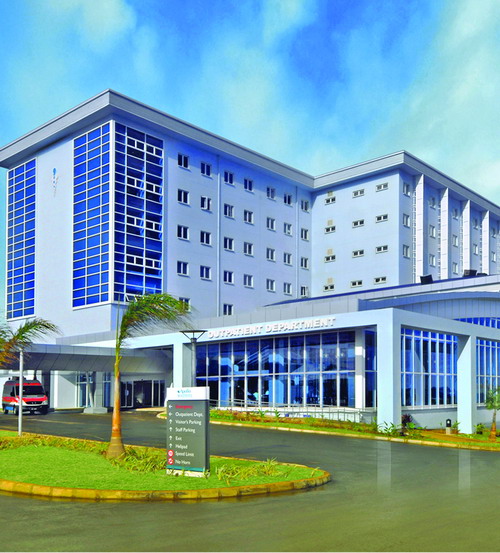News
British American Investment makes another healthy business decision
(China Daily)
Updated: 2010-10-13 09:20
 |
Large Medium Small |
With strategic investments in some 60 companies across sec¬tors as wide ranging as tourism, construction, transportation, trade and financial services, Brit¬ish American Investment (BAI) is proud to be one of the top business conglomerates in Mauritius.

From humble beginnings in 1969 as a branch office of British American Insurance, a life insur¬ance company headquartered in the US, BAI grew, over two decades, to become a leading life insurance company in its own right.
In 1992, it was listed on the Mau¬ritian Stock Exchange through an initial public offering and has just overseen the completion of one of its biggest projects to date, a joint venture with Asia’s largest health-care corporation, Apollo Hospitals Group, to build the 200-bed and multi-disciplinary Apollo Bram¬well Hospital in Mauritius.
The Indian-based Apollo Group boasts more than 7,500 beds in 43 hospitals and a string of nursing and hospital management colleges, pharmacies and diagnostic clinics across the continent.
BAI’s stellar performance in this and many of its other ventures have been largely down to the calculated risk-taking prowess of visionary BAI veteran Dawood A Rawat. Within his 40 years of service, Rawat has risen from country manager and worldwide CEO to the group’s chairman and single-largest shareholder.
Gutsy and determined, Rawat hopes such partnerships will form a large part of Mauritius’ future. “Apollo Bramwell Hospital was a big jump for us, and it is some¬thing we are very proud of,” he said. “We want to take Mauritius to another level. e market here is small, which is why we look to Africa and India. We can help them, and China, in turn can help us.”
The idea of Mauritius as a spring¬board for the Chinese to access African markets is a poignant one for Rawat.
“China could create a Mauri¬tius that is an aircra carrier and a free port. They could set up a trade center, where Africans can fly down and buy Chinese goods year round with no minimum container orders,” he said. “But it is important they add value locally and participate in the Mauritian economy by forming partnerships with local entrepreneurs.”
BAI diversified a long time ago, but not before realizing the value that could be found at home. “When we started, we sold low-premium life insurance and penetrated the market for lower income customers,” Rawat recalls. “People said our company couldn’t survive on penny premiums. But those penny premiums accumu¬lated, plus we gave people the discipline to save, we created jobs, and we helped realize capital in the country.”
Now BAI has interests in Madagascar, South Africa, Kenya, Dubai, Malta and France, with an impressive network of sales and marketing operations supporting the diverse range of products under numerous local and international brands. It’s an exciting time for Chinese involvement.
“We are opening up ‘Courts’ in Kenya, a Walmart-esque retailer where most of the goods will be imported from China. We are bet¬ter positioned than most because of our foothold there,” Rawat said. “I’d love to do more business with China because I see the fantastic potential. I know China will come to Mauritius with their eyes open and seriously consider us as a springboard for the region.”
(China Daily 10/13/2010 page7)